- Home
- Gillian Flynn
The Complete Gillian Flynn Page 69
The Complete Gillian Flynn Read online
Page 69
“They were trying to make you comfortable, they thought the harder they believed in you, the easier it’d be for you,” I said. “They were trying to help you, and you were trying to help them.” Dr. Brooner gave me a star-shaped pin with the words SuperSmart SuperStar printed on it after I nailed Ben with my testimony.
“Yeah!” Krissi said, her eyes going big. “This therapist, he helped me, like visualize, like entire scenes. We’d act it all out with dolls. And then he started talking to the other girls, girls who never even kissed Ben, and, I mean, it was just a few days, that we had made up this entire imaginary world where Ben was a Devil worshiper, doing things like killing rabbits and making us eat the insides while he molested us. I mean, it was insane. But it was … fun. I know that’s horrible, but we girls would get together, one night we had another slumber party, and we were up in the bedroom, sitting in a circle, egging each other on, making up stories, bigger and juicier, and … have you ever played with a Ouija board?”
“When I was a kid.”
“Right! And you know, you all want it to be real, so someone moves the heart-thingie a little and you know someone’s moving it, but part of you thinks maybe it’s real, it’s really a ghost, and no one has to say anything, you just all kind of know you’ve agreed to believe.”
“But you’ve never told the truth.”
“I told it to my parents. That day, the day you came over, the police had been called in, all the girls were at my house—they gave us cake, I mean, jeez, how screwed up is that? My parents said they’d buy me a dang puppy so I would feel better. And then the police left and the girls left and the therapist left, and I went up to my room and I just started crying, and it’s like, only then did I realize. Only then did I think.”
“But you said your dad was out searching for Ben.”
“Nah, that’s just a little fantasy.” She said it, and stared across the room again. “When I told him? My dad shook me so hard I thought my head would come off. And after those murders, all the girls panicked, everyone told the truth. We all felt like we’d really summoned the Devil. Like we made up this bad story about Ben and some part of it became true.”
“But your family got a big settlement from the school.”
“It wasn’t that big.” She eyed the bottom of her glass.
“But your parents went ahead with it, after you’d told them the truth.”
“My dad was a businessman. He thought we could get some sort of, compensation.”
“But your dad definitely knew, that day, that Ben had not molested you.”
“Yeah, he did,” she said, giving that chickeny neck jerk toward me, defensive. Buck came and rubbed against her pant leg, and she seemed calm, ran her long fingernails through his fur. “We moved that year. My dad said the place was tainted. But the money didn’t really help. I remember he bought me a dog, but every time I tried to talk about the dog, he sort of held his hand up, like it was too much. My mom, she just never forgave me. I’d come home and tell her about something that happened at school and—and she’d just say, Really? Like I was lying, no matter what I said. I could have told her I ate mashed potatoes for lunch and she’d just go, Really? And then she just stopped talking, she’d look at me when I came in the door from school, and then she’d walk over to the kitchen and open a bottle of wine, and she’d just keep refilling, wandering around the house, not talking. Always shaking her head. I remember one time I told her I wish I hadn’t made her so sad, and she said, she said, Well, you did.”
Krissi was crying now, petting the cat rhythmically.
“And that was it. By the end of the year my mom was gone. I came home from school one day, and her room was cleared out.” She let her head drop to her lap then, a childish, dramatic gesture, her hair flung over her head. I knew I was supposed to pet her, soothe her, but instead I just waited and eventually she peered up at me.
“No one ever forgives me for anything,” she whimpered, her chin shaking. I wanted to tell her I did, but I didn’t. Instead I poured her another drink.
Patty Day
JANUARY 2, 1985
6:11 P.M.
Patty was still muttering sorrys as Lou Cates hustled her toward the door, and suddenly, she was out on the step, in the freezing air, her eyes blinking rapidly. Between blinks, before she could get her mouth to move, to form any sort of word, the door opened again, and out stepped a man in his fifties. He shut the door behind him, and then there they all were, on the small front porch: Patty, Diane, Libby, and the man, basset-hound bags beneath watery eyes, his graying hair brushed straight back. He ran a hand through the pomade while he assessed Patty, his Irish Claddagh ring flashing.
“Mrs. Patty Day?” His coffee breath lingered in the cold air, vaguely discolored.
“I’m Patty Day. Ben Day’s mother.”
“We came by to find out what’s going on with these stories,” Diane interrupted. “We’ve been hearing a lot of rumors, and no one’s bothered to talk to us directly.”
The man cocked his hands on his hips, looked down at Libby, looked quickly away. “I’m Detective Jim Collins. I’m in charge of this investigation. I had to come by here today to talk to these folks and then of course I was going to get in touch with you. You saved me a drive. Do you want to talk somewhere else? It’s a little cold here.”
They went to a Dunkin’ Donuts just off the highway, separate cars, Diane muttering a joke about cops and donuts, then cursing Mrs. Cates—wouldn’t even give us the time of damn day. Bitch. Normally Patty would have said something in Mrs. Cates’s defense: Diane and Patty’s roles, straight-talker and apologist, were grooved deep. But the Cates family was in no need of defense.
Det. Collins was waiting for them with three paper cups of coffee and a carton of milk for Libby.
“Didn’t know if you’d want her to have sweets,” he said, and Patty wondered if he’d think she was a bad mother if she bought Libby a donut. Especially if he knew they’d had pancakes that morning. This will be my life from now on, she thought, always having to think about what people will think. Libby was smearing her face against the pastry glass already, though, hopping from one foot to another, and so Patty fished around in her pocket for some change and got a pink frosted donut, gave it to Libby on a napkin. She could not deal with Libby feeling denied, staring mournfully at all those pastel shades of sugar while they tried to have a conversation about whether her son was a Devil-worshiping child-molester. Again she almost laughed. She settled Libby at a table behind them and told her to sit still and eat while the grown-ups talked.
“You all redheads?” Collins said. “Where’s the red come from, you Irish?”
Patty thought immediately of her always-conversation with Len about their red hair, and then she thought, The farm’s going away. How did I forget that the farm’s going away?
“German,” she said for the second time that day.
“You have another few little ones, don’t you?” Collins said.
“Yes. I have four children.”
“Same daddy?”
Diane rustled in the seat next to her. “Of course, same daddy!”
“But you are a single mother, correct?” Collins asked.
“We’re divorced, yes,” Patty said, trying to sound as prim as a churchwife.
“What’s this got to do with what’s happening with Ben?” Diane snapped, leaning across the table. “I’m Patty’s sister by the way. I take care of these kids almost as much as she does.”
Patty winced, Det. Collins watched her wince.
“Let’s try to start this civilly,” Collins said. “Because we’ve got a long way to go together before this is cleared up. The charges leveled against your son, Mrs. Day, are of a very serious, and very concerning nature. At this point, we’ve got four little girls who say that Ben touched them in their private areas, that he made them touch him. That he took them out to some farm area and performed certain … acts that are associated with ritualistic Devil worship.” He said
those words—ritualistic Devil worship—the way people who don’t know cars repeat what the mechanic said: It’s a broken fuel pump.
“Ben doesn’t even have a car,” Patty said in a barely audible voice.
“Now the age difference between an eleven-year-old and a fifteen-year-old is only four years, but those are very crucial years,” continued Collins. “We would consider him a danger and a predator if these accusations turn out to be true. And, frankly, we’ll need to talk not only to Ben, but to your little girls too.”
“Ben is a good boy,” Patty said, and hated how limp and weak her voice was. “Everyone likes him.”
“How is he regarded at school?” Collins asked.
“Pardon?”
“Is he considered a popular kid?”
“He has a lot of friends,” Patty mumbled.
“I don’t think he does, ma’am,” Collins said. “From what we understand, he doesn’t have very many friends, he’s a bit of a loner.”
“So what does that prove?” Diane snapped.
“It proves absolutely nothing, Miss … ?”
“Krause.”
“It proves absolutely nothing, Miss Krause. But that fact, combined with the fact that he doesn’t have a strong father figure around, would lead me to believe he may be more vulnerable to, say, a negative influence. Drugs, alcohol, people who are maybe a bit rougher, a bit troubled.”
“He doesn’t associate with delinquents, if that’s what you’re worried about,” Patty said.
“Name summa his friends for me then,” Collins said. “Name the kids he hangs out with. Name who he was with last weekend.”
Patty sat, tongue thick in her mouth, and then shook her head, folded her hands near a smear of someone else’s chocolate icing. It was late coming. But now finally, she was being revealed for what she was: a woman who couldn’t quite keep it together, who lived from emergency to emergency, borrowing money, scrambling for sleep, sliding by when she should have been tending to Ben, encouraging him to pick up a hobby or join a club, not secretly grateful when he locked himself in his room or disappeared for an evening, knowing it was one less kid to deal with.
“There are some parenting gaps then,” Collins sighed, like he already knew the end to the story.
“We want a lawyer before anything else happens, before you talk to any of the kids,” Diane interrupted.
“Frankly, Mrs. Day,” Collins said, not even glancing at Diane, “with three little girls at home, if I were you, I’d want the truth out more than anyone. This kind of behavior doesn’t go away. In fact, if this is true, and to be frank, I think it is, your daughters were probably his first victims.”
Patty looked behind at Libby, who sat licking the frosting off her donut. She thought of how much Libby used to hang on Ben. She thought of all the chores the kids did on their own. Sometimes after a day working in the barn with Ben, the girls would come back to the house, irritated, weepy. But … what? They were little girls, they got tired out and cranky. She wanted to throw her coffee in Collins’s face.
“May I speak plainly?” Collins said, his voice kneading her. “I can’t imagine how … horrible it must be to hear these things as a mother. But I can tell you something, and this is straight from our psychologist, who’s been working one-on-one with these girls, and I can tell you what he tells me. That’s that these girls, they’re telling us things a fifth-grader wouldn’t know about, sexually, unless they’d actually happened. He says they are classic abuse scenarios. You know about the McMartin case, of course.”
Patty vaguely remembered. A preschool in California, and all the teachers were on trial for being Devil worshipers, molesting the kids. She could remember the evening newscast: a pretty sunny California house and then black words stamped across it: Daycare Nightmare.
“Satanic worship is not uncommon, I’m afraid,” Collins was saying. “It’s made its way into all areas of the community, and Devil worshipers tend to target young men, get them in the fold. And part of Devil worship is the … the degradation of children.”
“Do you have any evidence?” Diane bellowed at Collins. “Any witnesses besides some eleven-year-old girls? Do you even have kids yourself? Do you know how easily they imagine things—their whole lives are make-believe. So do you have anyone to vouch for these lies but a bunch of little girls and some Harvard know-it-all psychiatrist who impresses you all?”
“Well, as far as evidence. The girls all said he took their underpants as some sick souvenir or something,” Collins said to Patty. “If you’d let us look around your home, we could start to clear that up.”
“We need to talk to a lawyer before that,” Diane grumbled to Patty.
Collins swallowed his coffee and stifled a belch, banged his chest with a fist, and smiled mournfully over Patty’s shoulder at Libby. He had the red nose of a drinker.
“Right now we just need to be calm. We will talk to everyone involved,” Collins said, still ignoring Diane. “We interviewed several faculty members from his high school and the grade school this afternoon, and what we hear doesn’t make us feel any better, Mrs. Day. A teacher, Mrs. Darksilver?”
He looked at Patty for her to confirm the name, and Patty nodded. Mrs. Darksilver had always loved Ben, he’d been an especial favorite of hers.
“Just this morning she saw your son nosing around Krissi Cates’s locker. In the grade school. During Christmas break. This disturbs me, and,” he looked at Patty from the bottom of his eyes, aiming the pink rims at her, “Mrs. Darksilver says, he was apparently aroused.”
“What does that mean?” snapped Diane.
“He had an erection. When we looked inside Krissi’s bin, we found a note of a provocative nature. Mrs. Day, in our interviews, your son was repeatedly characterized as an outcast, a misfit. Odd. He’s considered a bit of a timebomb. Some of the teachers are actually frightened of him.”
“Frightened?” Patty repeated. “How can they be frightened of a fifteen-year-old boy?”
“You don’t know what we found in his locker.”
WHAT THEY FOUND in his locker. Patty thought Collins would say drugs or girlie magazines, or, in a merciful world, a bunch of outlaw firecrackers. That’s what she wanted Ben to be in trouble for: a dozen Roman candles sitting like kindling in his backpack. That she could take.
Even when Collins did his greasy lead-up—this is very disturbing, Mrs. Day, I want you to prepare yourself—Patty had figured, maybe a gun. Ben loved guns, always had, it was like his airplane phase and his cement-truck phase, except this one just kept going. It was something they did together—had done together—hunting, shooting. Maybe he brought one to school just to show it off. The Colt Peacemaker. His favorite. He was not supposed to go into the cabinet without her permission, but if he had, they’d deal with it. So let it be a gun.
Collins had cleared his throat then, and said, in a voice that made them lean in, “We found some … remains … in your son’s locker. Organs. At first we thought they might be part of a baby, but it seems they’re animal. Female reproductive parts in a plastic container, from maybe a dog or a cat. You missing a dog or a cat?”
Patty was still woozy from the revelation they actually thought Ben might have part of a baby in his locker. That they thought he was so disturbed that infanticide was actually their first guess. It was right then, staring down at a scattering of pastel donut sprinkles, that she decided her son was going to prison. If that’s how twisted they believed her son to be, he had no chance.
“No, we’re not missing any pets.”
“Our family is hunters. Farmers,” Diane said. “We’re around animals, dressing animals all the time. It’s not so strange that he might have something from them.”
“Really, do you keep parts of dead animals in your home?” For the first time Collins looked straight at Diane, a hard stare he cut off after just a few seconds.
“Is there a law against it?” Diane barked back.
“One of the rituals that Devil wors
hipers engage in is the sacrifice of animals, Mrs. Day,” Collins said. “I’m sure you heard about them cattle axed up over near Lawrence. We think that and the involvement with the little girls all ties together.”
Patty’s face was cold. It was done, it was all done. “What do you want me to do?” she asked.
“I’ll follow you to your place, so we can talk to your son, OK?” Collins said, turning paternal on that last note, his voice going high, almost flitting into babytalk. Patty could feel Diane’s hands clench next to her.
“He’s not at home. We’ve been trying to find him.”
“We absolutely need to talk to your son, Mrs. Day. Where do you think we can find him?”
“We don’t know where he is,” Diane interrupted. “We’re in the same boat as you.”
“Are you going to arrest him?” Patty asked.
“We can’t do anything until we talk to him, and the sooner we do, the sooner we’ll get this cleared up.”
“That’s not an answer,” Diane said.
“Only one I got, ma’am.”
“That means yes,” Diane said, and for the first time she lowered her eyes.
Collins stood up and walked over toward Libby during the last exchange, now he was kneeling down next to her, giving her a Hi sweetie.
Diane grabbed his arm. “No. Leave her alone.”
Collins frowned down on her. “I’m just trying to help. Don’t you want to know if Libby is OK?”
“We know Libby is OK.”
“Why don’t you let her tell me that. Or we could have Child Services—”
“Screw off,” Diane said, getting in front of him. Patty sat in her place, willing herself to disconnect. She heard Diane and Collins snapping behind her, but she just sat and watched the woman behind the counter make another pot of coffee, trying to focus all her interest on the coffee. It worked for just a second before Diane was pulling Patty and Libby, her mouth grimy with donut, out of the restaurant.

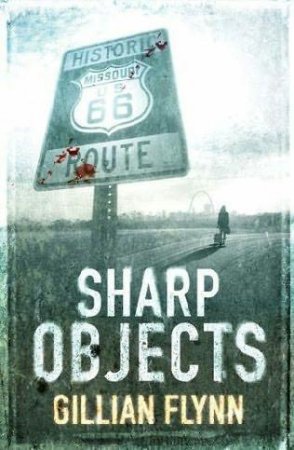 Sharp Objects
Sharp Objects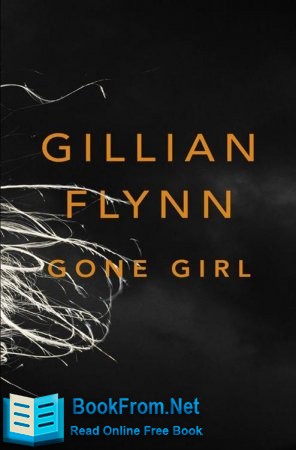 Gone Girl
Gone Girl Dark Places
Dark Places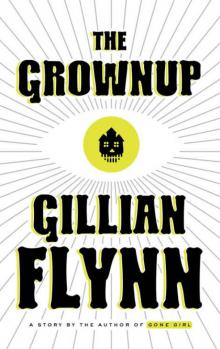 The Grownup
The Grownup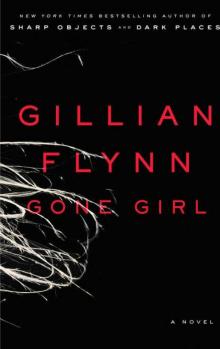 Gone Girl: A Novel
Gone Girl: A Novel The Complete Gillian Flynn
The Complete Gillian Flynn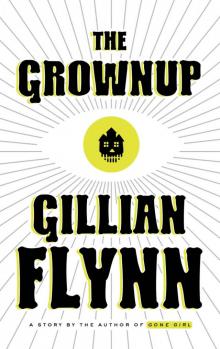 The Grownup: A Story by the Author of Gone Girl (Kindle Single)
The Grownup: A Story by the Author of Gone Girl (Kindle Single)